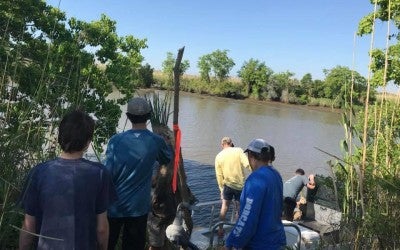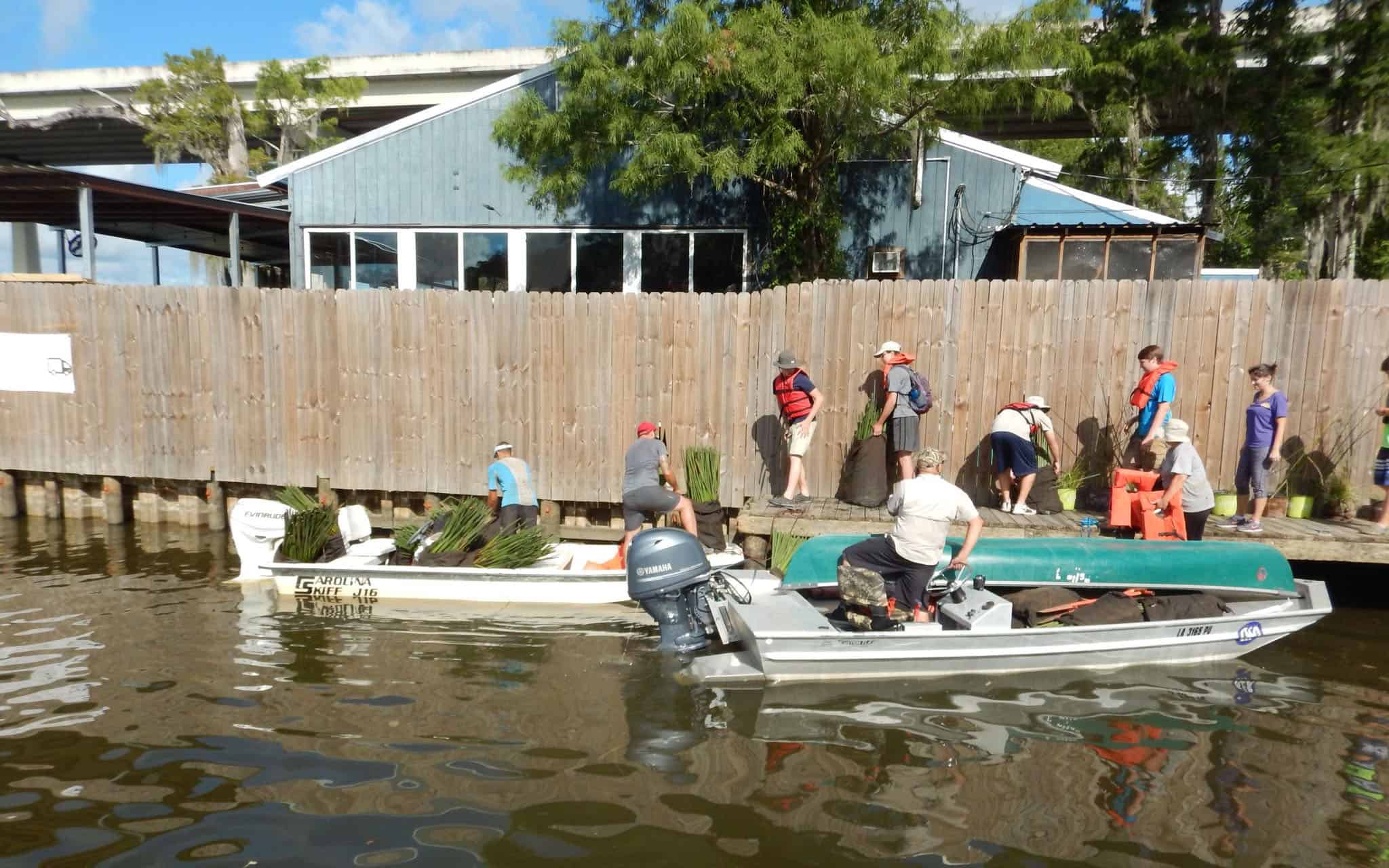Every June, a group of Springfield High School students pulls on rubber boots and steps into the swamps near Springfield, La., with burlap bags filled with California bulrush reeds. Their goal: Plant thousands of native grasses to restore habitat, combat erosion and protect coastal communities from the effects of wind and water.
“The marshes play a big role in our communities,” says Springfield High School senior and FFA member Micaela Bono.
The Springfield FFA Chapter received a $1,200 grant from the Natural Resources Conservation Service to start the project in 2016. Students established California bulrush, a native perennial that thrives in wetland marshes, in their school greenhouse and planted the mature grasses in local wetlands.
 The program started as a partnership with Louisiana State University and has since morphed into a standalone program that focuses on wetland restoration projects in Springfield and surrounding communities. Students learn about coastal wetlands and their role in the ecosystem in a hands-on way.
The program started as a partnership with Louisiana State University and has since morphed into a standalone program that focuses on wetland restoration projects in Springfield and surrounding communities. Students learn about coastal wetlands and their role in the ecosystem in a hands-on way.
“It was a great opportunity for us to start from an idea and develop it into a program,” says Springfield FFA member Dylan Fontenot. “It’s important that students get some knowledge about wetlands to truly understand why we’re doing this.”
The Springfield FFA Chapter partners with local community groups to coordinate annual restoration projects. Conservationists choose the sites and monitor plant growth over time, and the fire department transports students into the swamps on boats and oversees water safety.
Bono admits that it’s a little stressful knowing that snakes and alligators could be lurking beneath the waters in the bayou, but focusing on the task — driving the point of a short, sharp shovel into the ground and planting California bulrush reeds in each hole — is a good distraction. During the 2019 field day, the Springfield chapter planted 10,000 California bulrush weeds.
“It’s not the easiest task, but it’s so worth it to know that we’re making a difference in our community,” she says.
Wetlands restoration projects have become popular with Louisiana FFA chapters, according to Kendra Keen, agriscience teacher and Springfield FFA advisor. She estimates six chapters have started similar programs in the last five years.
The COVID-19 pandemic forced the chapter to cancel its 2020 restoration project. However, members plan to be back in the swamps next summer to establish more native grasses and restore wetland habitats.
“If you’re an FFA chapter in the bayou, it’s expected — just like FFA chapters in Texas are expected to show cattle,” Keen says. “We have to be out there because the community needs us.”












